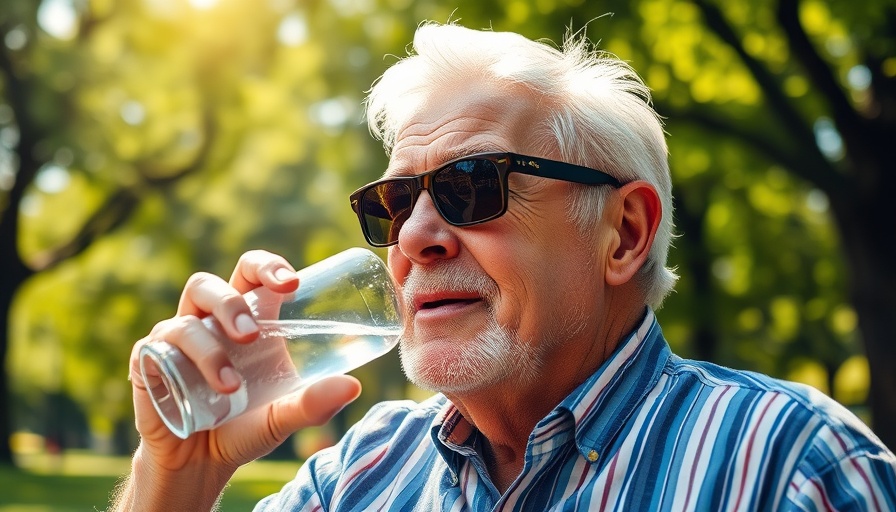
Understanding Seniors' Vulnerability to Heatwaves
As the climate continues to change, heatwaves are becoming more frequent and severe across the globe. For seniors, who are already at a heightened risk due to physiological and medical factors, the dangers of extreme heat cannot be overstated. Past experiences, such as the deadly heatwave experienced in the U.S. Pacific Northwest during summer 2021, remind us that more than 100 people, many of them over 70, lost their lives during this crisis, underscoring the importance of understanding and addressing heat-related health risks for older adults.
Physiological Factors at Play
Seniors face unique challenges when it comes to heat, primarily due to age-related declines in physiological functions. “Your ability to dissipate heat declines with age,” says James Williams, DO, MS, an emergency physician and spokesperson for The American College of Emergency Physicians. This lack of efficient thermoregulation can leave older adults susceptible to heat stress, even in milder temperatures. Additionally, many are taking medications for chronic conditions such as hypertension and diabetes, which can further complicate their ability to respond to heat.
Medication Concerns and Heat Sensitivity
A study involving over 9,700 older adults brought to light the issue of medication-related sensitivity to heat. The research revealed that common medications, including those for blood pressure and certain anticholinergics, could heighten the risk of heat-related illnesses, even when temperatures are not extraordinarily high. Soko Setoguchi, MD, DrPH, an epidemiologist from Robert Wood Johnson Medical School, emphasized the importance of not adjusting these medications without physician guidance.
Recognizing Heat-Related Illnesses
Understanding the continuum of heat-related illnesses can play a crucial role in prevention. The CDC outlines this range beginning with heat rash, advancing to serious conditions like heat exhaustion and heat stroke. Recognizing symptoms such as confusion, rapid heartbeat, or fainting is vital for ensuring timely medical intervention.
Practical Tips for Staying Cool
As summer heat approaches, seniors can take proactive steps to safeguard their health. Dr. Williams and Dr. Setoguchi recommend checking weather forecasts regularly to ascertain when conditions are especially dangerous for sensitive populations. It’s key to be aware that the 'not healthy' temperature recommendations often cater to broader demographics, meaning that for older adults, the threshold for safe temperatures may be lower. Moreover, understanding the impact of humidity is essential since high humidity levels make it even harder for the body to cool down.
Future of Heatwave Preparedness
The increasing frequency of heatwaves raises questions about public health policies and individual preparedness strategies. As the extent of their impact on senior health becomes clearer, communities must address these challenges through well-developed public health initiatives. Collaboration among health professionals, caregivers, and family members can shed light on preventative measures tailored to the needs of older individuals, facilitating a more effective response to heat-related threats.
Informative Resources and Accessibility
It’s crucial for older adults to have access to resources that inform them about the risks associated with heat and provide practical advice on how to mitigate these risks. Creating community programs focusing on heat safety, distribution of cooling materials, and emergency response readiness can greatly enhance safety measures for this vulnerable population.
Conclusion and Call to Action
As we embrace the joys of summer, awareness and proactive measures can significantly help seniors combat the perils of heatwaves. It is essential to foster community connections that ensure older adults have the support they need to stay safe. Stay informed, share your knowledge, and take steps to advocate for the necessary resources, as every degree counts in protecting our loved ones.
 Add Row
Add Row  Add
Add 




Write A Comment